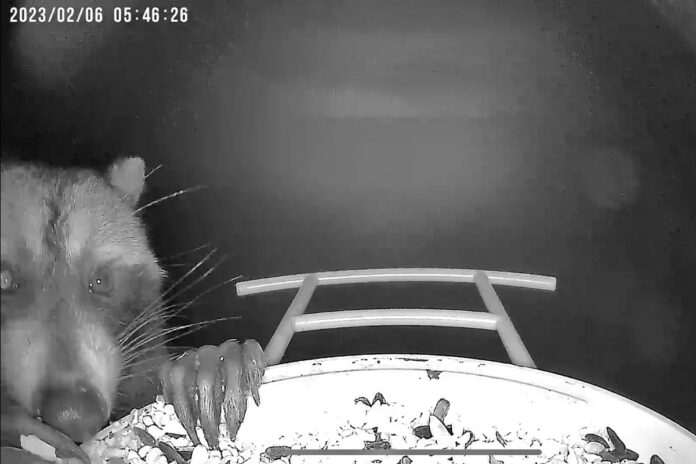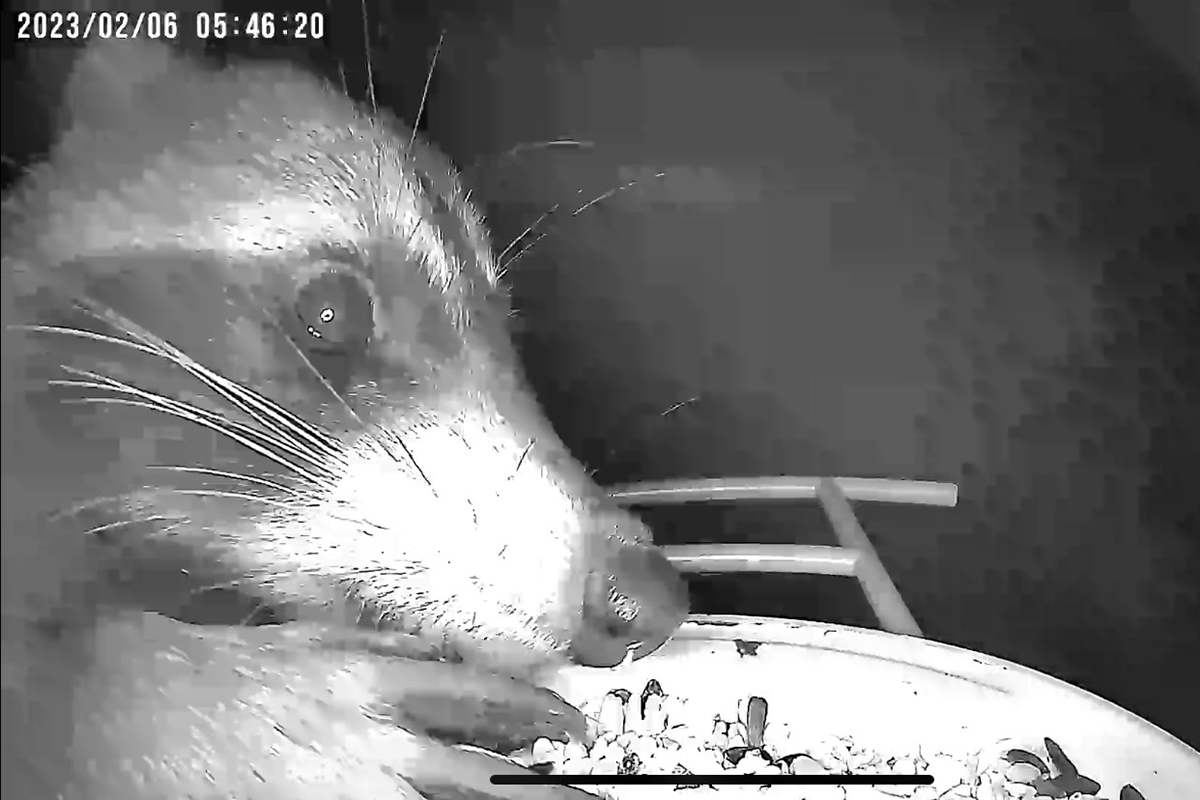
Yesterday I woke up to some interesting notifications on my phone. A doe and her baby, a hungry raccoon, a curious black squirrel, a couple of chickadees and a pair of cardinals were all captured on a bird feeder camera less than 24 hours after it was installed.
Some of these visitors were expected, some were welcome surprises and some we’d prefer to find another food source. As cute as the video of a raccoon eating fistfuls of birdseed was, it’s not enough to justify the continued feeding of Mr. Raccoon.
Raccoons can cause extensive damage to homes, garages, sheds and other structures when they take up residence. They are carriers of diseases. Worst of all, once raccoons decide they are comfortable and move in, they are hard to get rid of and you can spend a small fortune trying.
As with many pests, an ounce of prevention is worth a pound of cure. If you see raccoons hanging around your bird feeders or notice signs they visited during the night, take steps to keep them away.
Keeping raccoons away from your bird feeder

Bring your bird feeder in at night. Raccoons are nocturnal and forage at night. Bringing your bird feeder in before sunset should at least limit the amount of food available to them.
Only fill your bird feeder full enough to feed the birds. Similar to the first recommendation, this solution is intended to eliminate the possibility of providing a nighttime food source. Only fill your feeder full enough, so that your usual daytime visitors can snack. When night falls it will be empty and the raccoons will move along.
Reduce the food available. Slowly reduce the amount of food in your feeders or remove your feeder completely for a week to encourage the raccoons to find a new food source. In a situation where you live close to a wooded area or other raccoon habitats, this solution may be ineffective.
Hang your bird feeder on a pole. Hang your bird feeder from a pole or shepherd’s hook a half inch or less in diameter. Raccoons are unable to climb poles that thin. As long as the pole is secured firmly so it can’t be knocked over, they shouldn’t be able to access the feeder.
Suspend your bird feeders from a wire running between two trees. Then string soda bottles along the wire on either side of the feeder. Raccoons and squirrels will both be excluded using this method.
Reduce the seed on the ground. You can reduce the amount of seed that falls to the ground by using one type of seed per feeder and using feeders that can catch fallen seeds.
Serve spicy birdseed. Mammals are affected by capsaicin — the compound in hot peppers that causes a burning sensation when we eat them. Incidentally, birds are not affected by this compound. Many bird foods add capsaicin as a powder coat, liquid coat or as part of a suet mix to repel raccoons. Use birdseed treated with capsaicin for at least a week to deter raccoons.
Use weight-sensitive bird feeders. Some feeders are spring-loaded so that when a larger animal climbs on them and tries to feed, the feeder holes are closed off. Cage bird feeders are another effective option that restricts access to raccoons and other animals.
Purchase a raccoon guard or baffle. Both homemade and store-bought raccoon guards can help protect pole-mounted feeders.
Don’t use grease. Don’t use grease poles or wires that bird feeders are attached to because exposure can be detrimental to the birds that visit. When oil gets on their feathers, birds can’t preen it out. When their feathers can’t be preened they don’t work as well for flight or insulation, which makes them vulnerable to predators, inclement weather and disease.
Make sure your birdseed is stored securely. Galvanized metal cans with tight-fitting lids are the preferred storage receptacle for birdseed. They deter animals who can chew through plastic and keep birdseed safe from water and other insects.
Reduce other food sources. Just as birdseed that’s not properly stored can attract raccoons and other animals, other food sources such as pet food, trash and fallen fruit and nuts can attract raccoons. Eliminating food sources is the best way to keep them away from your bird feeders and away from your house.
Related Content
- How to keep raccoons away from your home
- How to get rid of raccoons in an apartment
- How to avoid common bird feeder problems
- How to attract a variety of winter birds to your feeder in Ohio
- How to attract winter birds to your feeder









